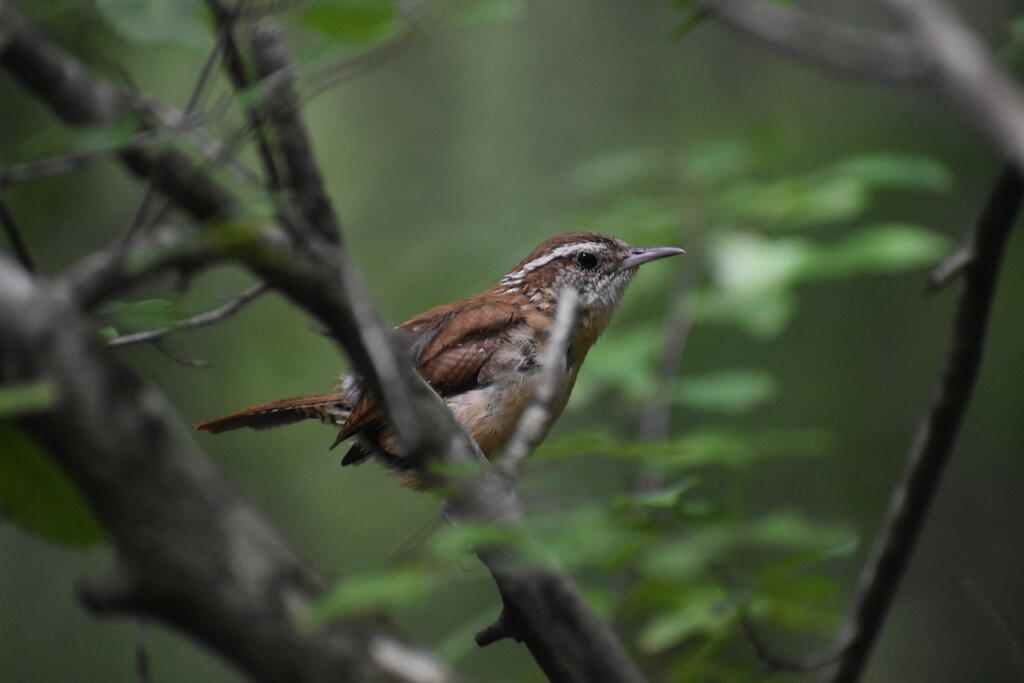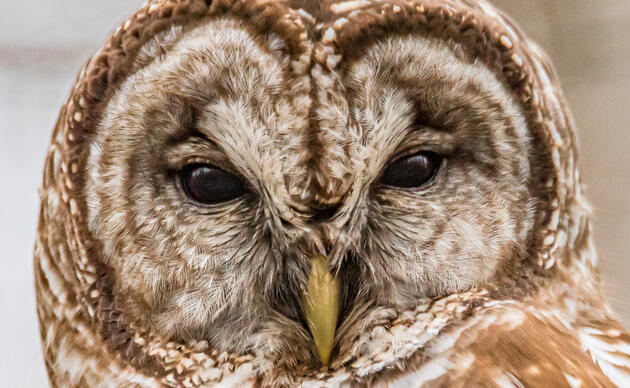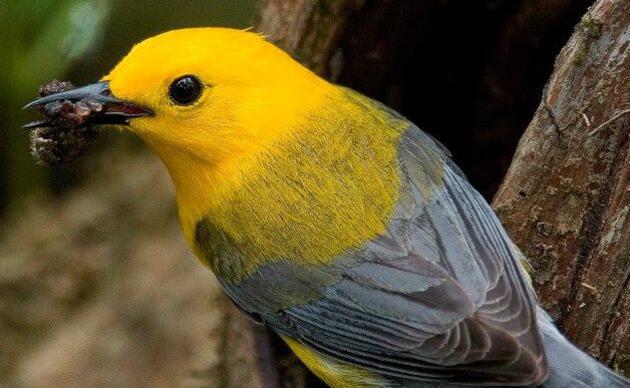
As the year comes to a close, many of the birds that birders across the country come to Beidler Forest to see have already packed up and headed south for the winter. Gone are our Prothonotary Warblers, Painted Buntings, and Swallow-tailed Kites. Many wintering species have arrived to replace them like Swamp Sparrows, Northern Flickers, and Golden-crowned Kinglets. But some birds are here all year round. One such bird is the familiar Carolina Wren.
The Carolina Wren (Thryothorus ludovicianus) is our most commonly seen wren here in South Carolina and was designated our official state bird in 1948. The bright "tea-kettle tea-kettle tea-kettle" song of the male is a familiar sound to many across the southeastern United States. They can often be found busily foraging for insects, seeds, and fruits on or near the ground and are highly inquisitive birds. Often using their long, narrow beak to probe into crevices as they hop from tree to tree in search of food.
During nesting season, both males and females fiercely defend their territory both from potential threats as well as competition. Pairs typically mate for life and utilize the same territory for many years together. It is not uncommon to find them nesting inside pots so be careful while gardening to avoid disturbing their nests.
Once only seen in the southeast, Carolina Wrens have slowly been expanding their range northward over the last few decades, believed to be a result of milder winters across the eastern US. Their population has been growing, a trend not shared by most native bird species. The Carolina Wren's main threat is predation by domestic cats.
Carolina Wrens are a rewarding bird to watch and are commonly seen in many yards across eastern North America and frequently visit bird feeders, especially during the winter. Consider leaving a brush pile in your yard and watch Carolina Wrens (and other wildlife) forage in it year round. If you would like a pair to set up their territory in your yard you may even consider buying or building a birdhouse specifically for wrens. Once you attract a pair they will stick around for many years to come.











